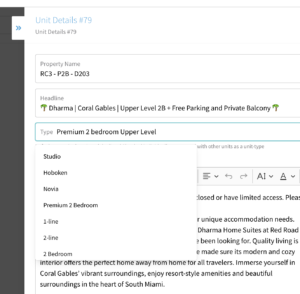The vacation rental industry is booming and there’s plenty of room for new and existing players to grow and enhance their businesses. The question is, where to start? For new players, we’ll walk through the basics of starting a vacation rental business. For those already in the game, consider the following tips and tricks on tools, systems, and techniques to build ease and success in a modern, remote world.
Are vacation rental businesses profitable? Yes, starting a vacation rental business can be profitable. The vacation rental industry is booming – revenue in the vacation rentals segment is projected to reach $81.14 billion in 2022. If you’re thinking of starting a vacation rental business, now is the time to do it.
Short-term rental businesses are appealing because they are popular among those who rent houses for short periods of time. The most important variable affecting profitability is where you are located. The occupancy level, demand, competition, and pricing in a specific location are all factors that influence profitability, the more appealing the location, the higher the chance of success.
You can do several things to increase your chances of profitability when starting a vacation rental business. With the right planning and execution, you can create a thriving short-term rental business that brings in steady income.
It goes without saying that starting a vacation rental business is not a walk in the park. It requires time and effort to manage guests, maintenance, and sudden changes. But if you set yourself up for success with the right tools and systems, and put in the hard work required, running a successful vacation rental business is surely possible. Here are our four tips to help get you started:
The best approach to promote your rental is to list it on vacation rental websites. This will give potential guests the opportunity to see pictures of your property and read reviews from other renters. It’s also a good idea to set up a social media account for your rental business, which will help you reach a diversified audience to build brand awareness.
Now that you’ve got the basics down, it’s time to start growing a successful short-term rental business:
As the owner of a short-term rental business, choosing software can make or break your day-to-day operations. Rental unit managers often turn to property management systems (PMS) to run their day-to-day, but managers and owners will also benefit from setting up a centralized software system to assure your PMS, ticketing software, and other plug-ins are fully integrated.
To grow your rental business, your entire suite operations tech should work together as one, connecting your front of the house, back of the house, and reporting deck – every corner of the booking space.
When selecting or up-leveling your software, ask yourself these starter questions:
Read: How to Integrate your PMS and Ticketing Software.
Take advantage of a new, remote workforce to reduce overhead costs and give you more space to run and grow your business. Remote staff can help with everything from customer service to marketing and bookkeeping. Hiring, onboarding, and managing remote staff will be easier with a flexible knowledge base that taps into automation, device notifications, and workplace autonomy.
Organizing your business operations is key to a successful vacation rental business. This includes creating personalized processes and protocols for everything from guest check-in to housekeeping, to staff onboarding — all within your central operations platform. Automating communications is also essential, as this takes the pressure off of management or ownership.
One of the best ways to understand and achieve growth in your vacation rental business is with tracking and reporting. Month over month growth numbers will help you project pricing, marketing, and operations as your business expands and changes. By tracking data, you can see what is and isn’t working for your business and make changes accordingly. Monthly reports will also help owners decide which issues to prioritize. For example, using a flexible knowledge base, you can tag repeat maintenance issues in one unit, such as a plumbing issue, as high priority.
Read: What’s a flexible knowledge base in hospitality management?

Integrating your tech – from ticketing to billing – into one hospitality operations platform can be extremely efficient for businesses that are starting out or growing, as it allows you to manage all aspects of your short-term rental business from one place. By creating a foundation with a centralized platform, managers and owners can track their guest reservations, organize new bookings, manage finances, and automate staff tasks, and more by region and unit — a particular pain point for small to medium-sized business owners. Tech Integration can save a lot of time and hassle, and help you to run your vacation rental business more conveniently so you can do what you do best: run and grow a great business.
Manage and grow your short-term rental business with LosjiTech, a Hospitality Operations Platform that centralizes your tech platforms, an intuitive next step for modern businesses to manage and scale. Schedule a demo call with us today to learn more